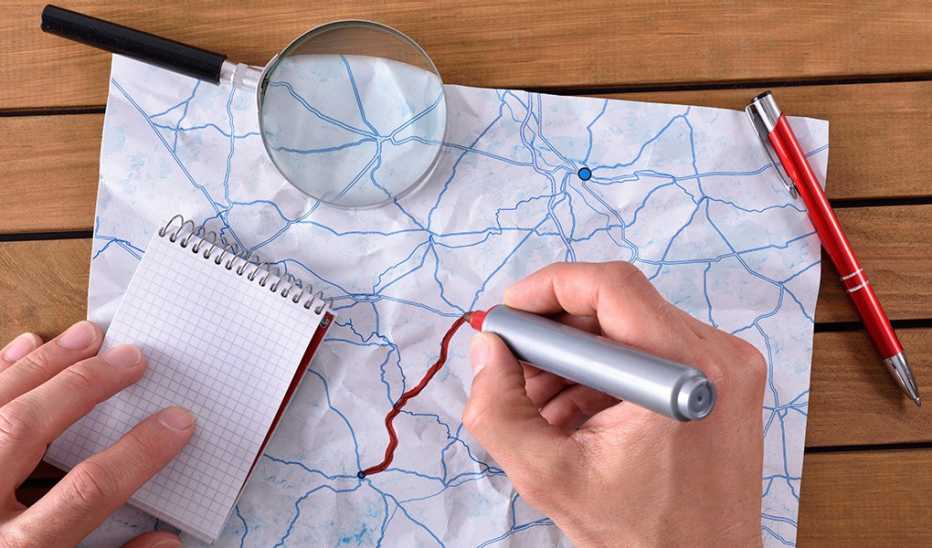Challenges


Quick Win
To support your brain health, challenge yourself to get around without the help of GPS.
Try This Today
- Escape your rut. Without immediately consulting a map or GPS, see if you can reach a familiar destination using new streets and shortcuts. Watch for opportunities to take roads less traveled as you go about your daily routine.
- Try a paper map. The next time you go somewhere new, use a paper map to plan a route without assistance from GPS. After you take the drive, see if you can draw your route from memory.
- Get back on your own. Try going somewhere new with a map, and then see if you can find your way back without it. Knowing you are going to test yourself should help you pay closer attention to landmarks and other environmental cues as well as distances as you travel.
Why
In a study of 50 adult drivers between the ages of 19 and 35 published in 2020 in Scientific Reports, those who relied on GPS the most frequently performed the worst on self-guided navigation tasks designed to test spatial memory. In a similar vein, 158 healthy adults ages 18 to 87 reported on their spatial memory and their experience orienteering, which is a sport in which people find their way across unfamiliar terrain using a map and compass. Those who were most experienced at orienteering reported greater spatial memory than others, according to a 2023 report in PLOS One.











More From Stying Sharp
Looking for a Solution? Try Mind Mapping
A colorful addition to your problem-solving tool kit
Tips to Help Remember Deadlines
Use your imagination to link to something that will jog your memory
Track Your Moods
Logging how you’re feeling can empower you to take charge